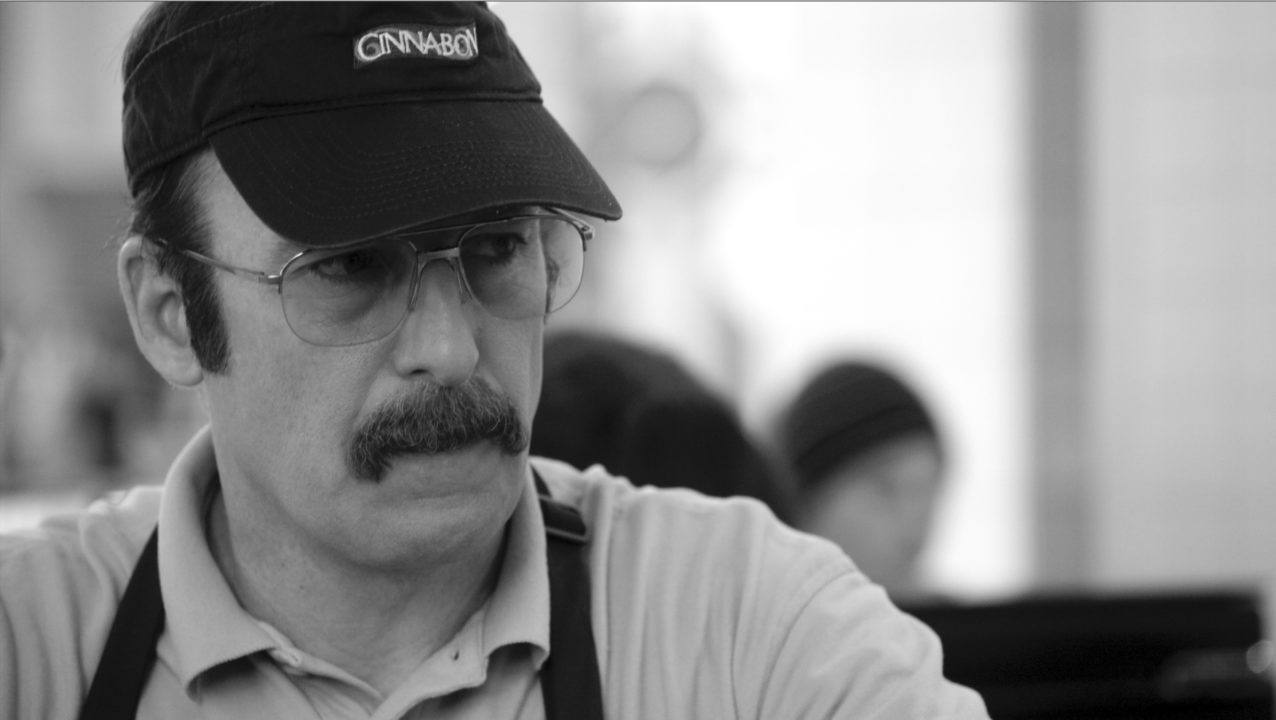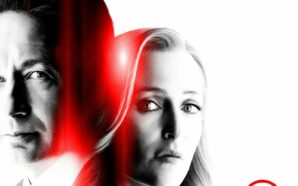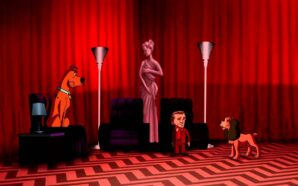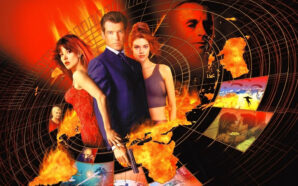Spoilers for Lost, Arrival, Breaking Bad, Better Call Saul, The Walking Dead, Agents of Shield, Uncharted 2 and The Leftovers incoming.
Every now and then television as we know it gets reinvented. One pioneering show garners acclaim and fandom and completely changes the landscape inspiring a number of other subsequent series. The idiosyncratic genre mash-up of Twin Peaks is still felt over 25 years later with shows like Fargo, Riverdale and of course Twin Peaks: The Return. After The Sopranos (and Star Trek: Deep Space Nine) the biggest shows were all focusing on the morally-ambiguous middle-aged man, just a few examples include Mad Men, Breaking Bad and Deadwood. It’s not always an entire subgenre or wide shift in focus however, sometimes narrative devices are used once and then suddenly flood the medium. The main example is the flashforward, a post-modern narrative device that has seen a resurgence in recent times on television and while it can be effective I am now incredibly tired in its overuse. I’m not complaining about classic profound uses of the story aid such as in A Christmas Carol or even Martin Scorsese’s Goodfellas, it’s the uses post season 3 finale of Lost specifically. I’ve compiled a few examples, both good and bad, to explain just why I believe the flashforward to be the most overused and misused tool of the long-form narrative.
While I know other shows such as Damages used flashforwards or ‘prolepsis’ if we’re being fancy prior, it was the season 3 finale of Lost which brought the narrative device into mainstream television. For three seasons, we had been seeing flashbacks to the characters before they ended up on the island and during the season 3 finale when audiences saw Jack, complete with an abuse problem and a laughably bad fake beard, we automatically presumed it was another flashback. However, as the final minutes of one of the best season finales ever concluded, we see Jack meet up with Kate (duh duh duuh!) and start to shout “We have to go back!”. It’s a fantastic moment as we suddenly realise the truth and Lost continues to use flashforwards so they can concurrently present both the quest to leave the island and the quest to return to it in the next few seasons in a genius move (although let’s not talk about the flash-sideways in the final season). It’s a truly brilliant use of the narrative device, similar to the prolepsis in Arrival, and every TV writer and producer realised it and wanted to have their turn to look clever and so the downward spiral began.
Breaking Bad, now surpassed by Game of Thrones, was the biggest television hit of the 21st century and unlike some popular series it deserved to be. Undeniably a fantastic show it does have one big stupid mistake: the season 2 flashforwards. Over the course of four flashforwards placed in the opening scenes of certain episodes of season 2 (the titles of which offer a clue to what ultimately happens) we see a half-burnt teddy bear floating in Walt’s pool and later some body bags next to Walt’s house get taken by the authorities. This is all shown in black-and-white too just to be a little extra pretentious. For the whole season we are wondering what has happened; could the drug business have caught up to Walt’s personal life and led to his family’s death? The answer was no. Walt’s actions had in fact, in a silly contrived way, caused two planes to collide above his house peppering the street with debris and bodies. The more I think about it the more I dislike it and it just feels like Vince Gilligan and his writing team, who I’m a fan of, thought they were being clever but just used the flashforward to disappoint with the unbelievable twist and reveal. I don’t even like the two flashfowards to Walt in the finale in the opening episodes of seasons 5A and 5B; so much interesting stuff was occurring in the present, the future seemed an unnecessary addition with the simpler linear path often being the most effective.
Showrunners Gilligan and Gould (who sound like 19th century playwrights) have continued the black-and-white flashforwards into spin-off series Better Call Saul which I’m not crazy about but I’m willing to reserve full judgement until we get the pay off. They show Saul/Jimmy under yet another name working in a Cinnabon with a mustache because whenever we see people in the future they have to have some kind of facial hair as a cheap way of identifying a difference in time period. I do like seeing Saul post Breaking Bad especially because the flashforwards end with Saul reminiscing about old times, whether watching old video tapes, drawing Saul Goodman graffiti or having a dream after a possible heart attack, so the majority of the show can be seen as a conventional flashback instead of the black-and-white segments being flashforwards. These segments will probably open up into something more in the future because now Saul is in hospital his identity could be uncovered and the drama could shift to that time period now that we are gearing up to Jimmy becoming Saul in the past time frame.
Flashforwards are rife in television because you can really play with the future (and audience) in a long form narrative that unfolds over time as opposed to a film which is over and done with in a couple of hours. However, videogames also dabble in the flashforward and perhaps my favourite in any medium occurs in Uncharted 2. The game opens as protagonist Nathan Drake awakes on a train, clothes soaked in blood and a bullet in his gut. Suddenly something falls past him as he realises the train is hanging vertically off a cliff in a Himalayas. Fighting death, the cold and armed mercenaries he climbs to safety before ultimately collapsing to the ground meeting an unknown fate as we travel back in time to see how he ended up in such a situation. It’s a visceral and unexpected opening which not only shows the terrific graphics and gameplay but also acts as a tutorial and immediately hooks the player into the narrative. And when we catch up to these opening events at the midpoint of the game they are not disappointing, quite the opposite in fact, because the mission on the train before it crashes is among the best action set pieces in the history of video games.
While the overall quality of the storytelling has dropped off in recent years I’m still a fan of The Walking Dead but something in the trailer for the new season has me worried. The trailer ends with a scene showing what is likely the future with Rick with a walking stick and some grey hair. Having read the comics does inform my decision that this is indeed the future but it’s still pretty obvious. In my eyes, the upcoming season needs to be a fast paced telling of the war between Rick and co against Negan and focus purely on that to make up for the disappointing season 7 and the flashforwards will get in the way of that. I’m guessing that we will get multiple flashforwards throughout the season teasing us to what the world is like after the conflict and who survives and I hate that idea. I want an adaptation of the ‘All Out War’ storyline from the comics this season and the flashforwards will feel like a distraction for the writers and audience and could be used as ploy to try and spice up the show which has been failing more than succeeding lately.
I guess at some point I should mention the show that was actually called Flashforward which featured every person on the planet passing out and getting a glimpse into their future. Unlike many I actually really enjoyed the show, and the book on which it was based, and was disappointed at its cancellation. While called Flashforward this isn’t your standard flashforward because the characters saw what will happen as well as the audience pushing it into the self-fulfilling prophecy zone. The whole series was based around the concept of these flashforwards and if they could change the future and while the show was obviously trying to be ‘the new Lost’ it offered something different to the concept and always focused on the importance to the narrative while playing with foreshadowing rather than just being a gimmick.
Another misuse of the flashforward is the placement and a prime example is in the third season of Marvel’s Agents of Shield. Yes, I do know that it is spelt Agents of S.H.I.E.L.D but that takes too long. In the season 3 mid-season premiere we see a glimpse of the future where an unknown Shield agent, in possession of a particular necklace, dies in an explosion in space. This is then forgotten about for multiple episodes that have nothing to with it until one of the characters gets a glimpse of this event, the very same glimpse we have seen before, and tries to stop it from happening albeit unsuccessfully. I have no problem with Daisy seeing the flashforward and then trying to stop it because it plays with the self-fulfilling prophecy concept and seeing the death sentence of a necklace get passed from person to person like a hot potato is a fun tease. My issue is why we had to see it so far in advance and then it not be important until we see it again with another character also being a witness to it. The whole point of the flashforward is as a narrative device but it worsens the narrative when we see this for the first time because of its irrelevancy and is probably only included because it’s now the norm to have these useless flashforwards. This incorrect placement of the flashforward brings us to my final example which bookends the article with a healthy dose of Lindelof.
Damon Lindelof brought forth the resurgence of the flashforward with Lost and fell into its trappings with the latest season of The Leftovers. I love The Leftovers with it being one of my favourite TV shows of all time and its second season being my favourite season of TV of all time. The third and final season overall is great, if not a little rushed, but features a flashforward at the end of the first episode which I just don’t like. We see Nora, grey haired and wrinkled, living a quieter life under a different name and pretending not to know Kevin. Sure, there is a joy in anticipating when and how Kevin and Nora’s relationship declines but 10 minutes into the series finale, after we see Nora in a mysterious machine that may or may not send her to another place/plain of existence we cut to the very same scene and continue from there for the rest of the show. Having already seen it takes away from the surprise and the ambiguity of where the scene takes place (alternate dimension? Kevin’s limbo world? An afterlife?) is lessened because we have been guessing for weeks that it was in the future. It’s the same issue I had with Agents of Shield which is we should see the flashforward when it makes sense and not just use it to open up a season with a mysterious twist.
So, there are some major examples to explain my irritation at the unnecessary use of the flashforward which has become a staple of the small screen despite rarely accomplishing its aim as a narrative aid. But what are your thoughts on flashforwards? Let me know in the comments and geek out with me about TV, movies and videogames on Twitter @kylebrrtt.








